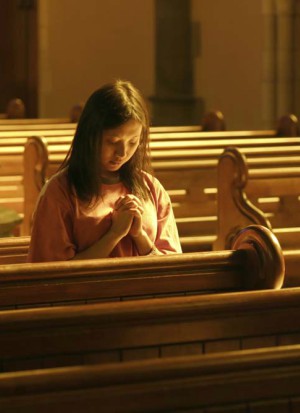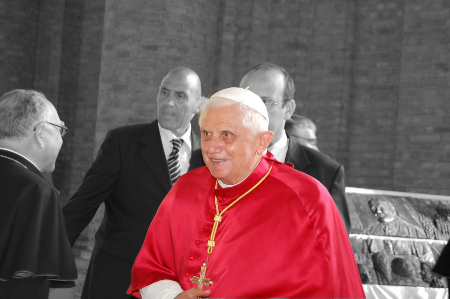We ask you, humbly: don't scroll away.
Hi readers, it seems you use Catholic Online a lot; that's great! It's a little awkward to ask, but we need your help. If you have already donated, we sincerely thank you. We're not salespeople, but we depend on donations averaging $14.76 and fewer than 1% of readers give. If you donate just $5.00, the price of your coffee, Catholic Online School could keep thriving. Thank you.Help Now >
Alexander (Early Bishops)
FREE Catholic Classes
ALEXANDER OF ANTIOCH
Thirty-eighth bishop of that see (413-421), praised by Theodoret (Hist. Eccl. V, 35) "for the holiness and austerity of his life, his contempt of riches, his love of wisdom, and powerful eloquence." He healed the last remnants of the Meletian schism at Antioch, and obtained at Constantinople the restitution of the name of St. John Chrysostom to the ecclesiastical diptychs (registers).
ALEXANDER OF APAMEA
A Syrian bishop at the Council of Ephesus (431), and one of the eight bishops deputed by the party of John of Antioch to the Emperor Theodosius.
ALEXANDER OF BASILINOPOLIS
In Bithynia, a friend of St. John Chrysostom , to whom he owed his appointment as bishop ; after the fall of his patron he retired (c. 410) to his native Ptolemais in Egypt, where he experienced the hatred of Theophilus of Antioch and the private friendship of Synesius (Epp. 61,67).
ALEXANDER OF BYZANTIUM
As Constantinople was then called, bishop of that see during the original Arian troubles. He was 73 years old when appointed (313 or 317), and governed the see for 23 years. He supported his namesake of Alexandria against Arius, took part in the Council of Nicaea (325) and refused to admit the arch-heretic to communion, though threatened with deposition and exile. The sudden death of Arius was looked on by contemporary Catholics as an answer to the prayers of the good bishop, whom Theodoret (Hist. Eccl., I, 3) calls an "apostolic" man. He did not long survive this tragic event.
We ask you, humbly: don't scroll away.
Hi readers, it seems you use Catholic Online a lot; that's great! It's a little awkward to ask, but we need your help. If you have already donated, we sincerely thank you. We're not salespeople, but we depend on donations averaging $14.76 and fewer than 1% of readers give. If you donate just $5.00, the price of your coffee, Catholic Online School could keep thriving. Thank you.Help Now >
ALEXANDER OF HIERAPOLIS (EUPHRATENSIS)
An unbending opponent of St. Cyril in the Council of Ephesus (431), and an equally stanch advocate of Nestorius. Even when John of Antioch and most of the Oriental bishops yielded, and a general reconciliation was effected, Alexander stood out against "the abomination of Egypt ". His character is vividly portrayed in the correspondence of his friend and admirer, the historian Theodoret, as that of a grave, holy, pious man, beloved by his people, but hopelessly stubborn along the line of what seemed to him the orthodox faith. After the exhaustion of all measures to overcome his resistance, he was banished by imperial decree to the mines of Phamuthin in Egypt, where he died (Tillemont, Mem., XIV, XV).
ALEXANDER OF JERUSALEM
The friend of Origen, and his fellow student at Alexandria under Pantænus and Clement. He became bishop of a see in Cappadocia (or Cilicia?) early in the third century, entertained for a time his master Clement, and himself suffered imprisonment for the Faith (204-212). On his release, he visited Jerusalem, and was chosen coadjutor to Narcissus, the elderly occupant of that see. This was the first case of an episcopal translation and coadjutorship. and had to be ratified by the hierarchy of Palestine assembled at Jerusalem (Valesius in Eus., Hist Eccl., VI, 11; Socrates, Hist. Eccl., VII, 36). The first Christian theological library was formed by him at Jerusalem (Eus., Hist. Eccl., V, 20). He defended Origen against his bishop, Demetrius, when the latter had taken offence at the permission accorded Origen to expound the scriptures publicly in the church of Caesarea in the presence of bishops, the latter being the only authoritative exponents of the sacred text . Alexander and Theoctistus ( Bishop of Caesarea ) wrote a joint letter to Demetrius, in which they pleaded the ecclesiastical usage of other places (Eus., Hist. Eccl., VI, 19). In the end Origen was ordained a priest by his two protectors (c. 230). He bears personal testimony at the beginning of his first homily on the Books of Kings, to the amiable character of Alexander. The latter died in prison at Caesarea (251) during the Decian persecution. Some fragments of his letters are preserved in the sixth book of the Ecclesiastical History of Eusebius.
We ask you, humbly: don't scroll away.
Hi readers, it seems you use Catholic Online a lot; that's great! It's a little awkward to ask, but we need your help. If you have already donated, we sincerely thank you. We're not salespeople, but we depend on donations averaging $14.76 and fewer than 1% of readers give. If you donate just $5.00, the price of your coffee, Catholic Online School could keep thriving. Thank you.Help Now >







 Daily Readings for Friday, April 19, 2024
Daily Readings for Friday, April 19, 2024 St. Alphege: Saint of the Day for Friday, April 19, 2024
St. Alphege: Saint of the Day for Friday, April 19, 2024 Stewardship Prayer: Prayer of the Day for Friday, April 19, 2024
Stewardship Prayer: Prayer of the Day for Friday, April 19, 2024

